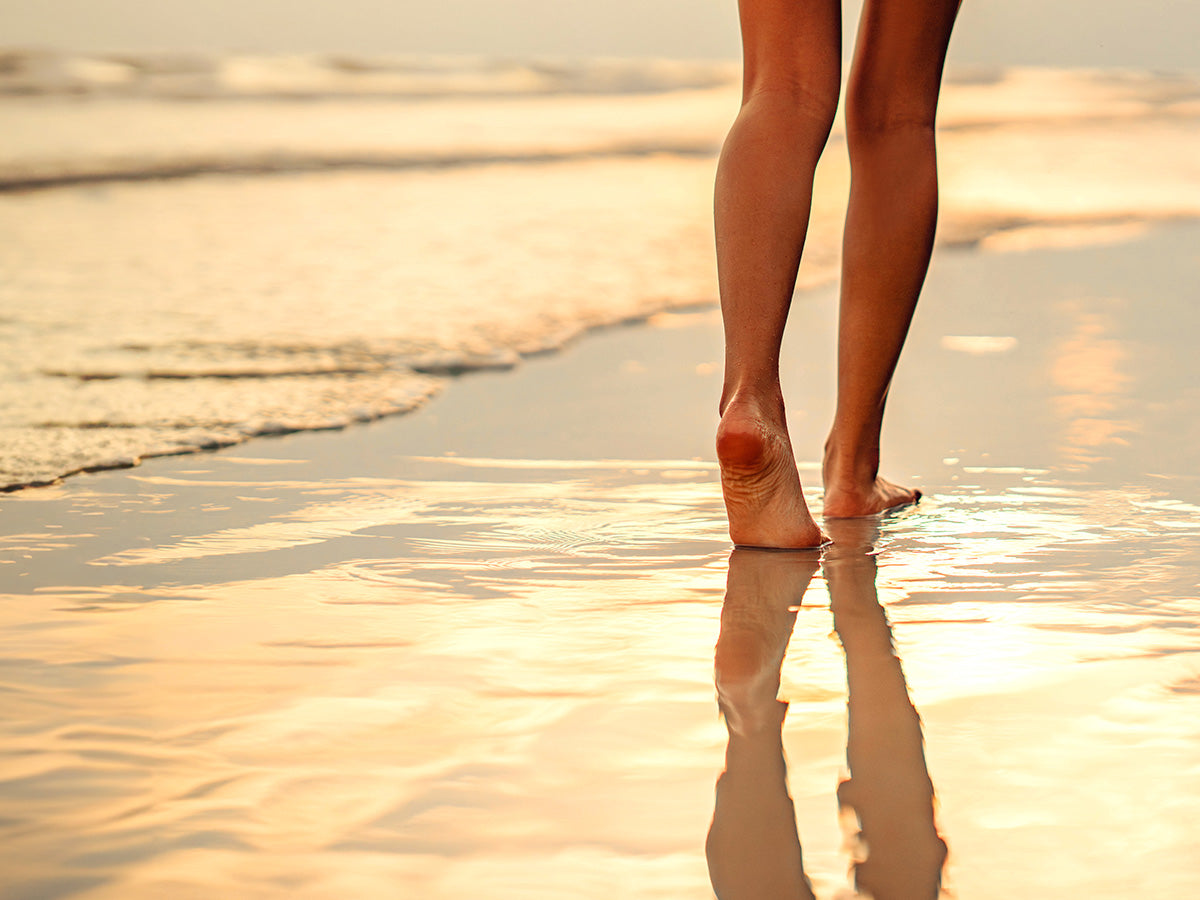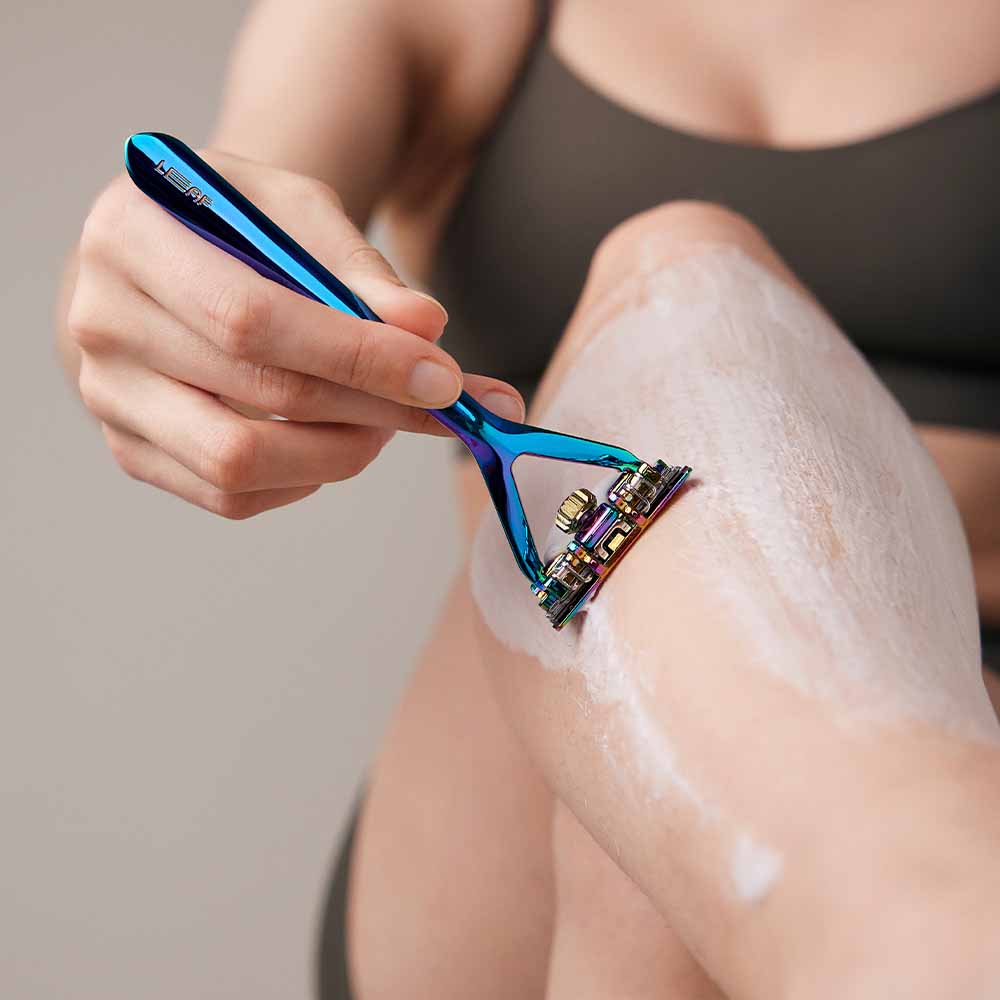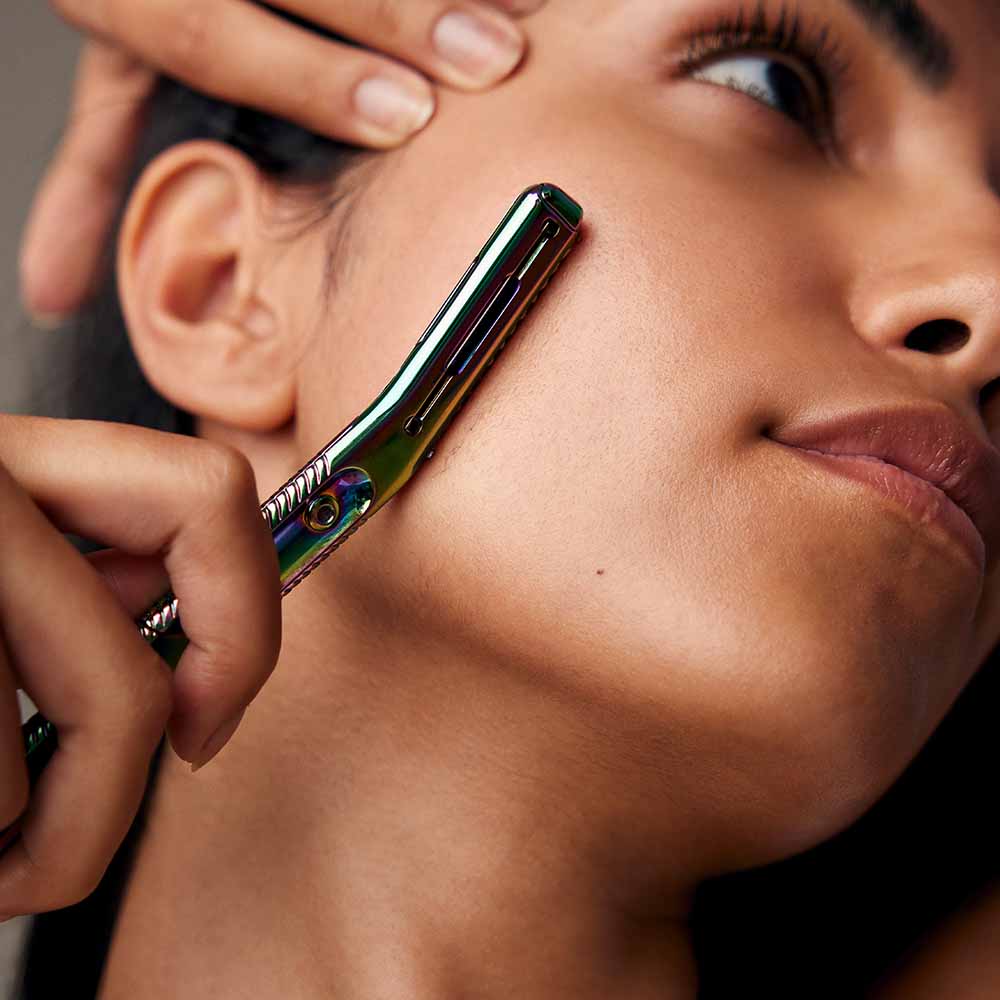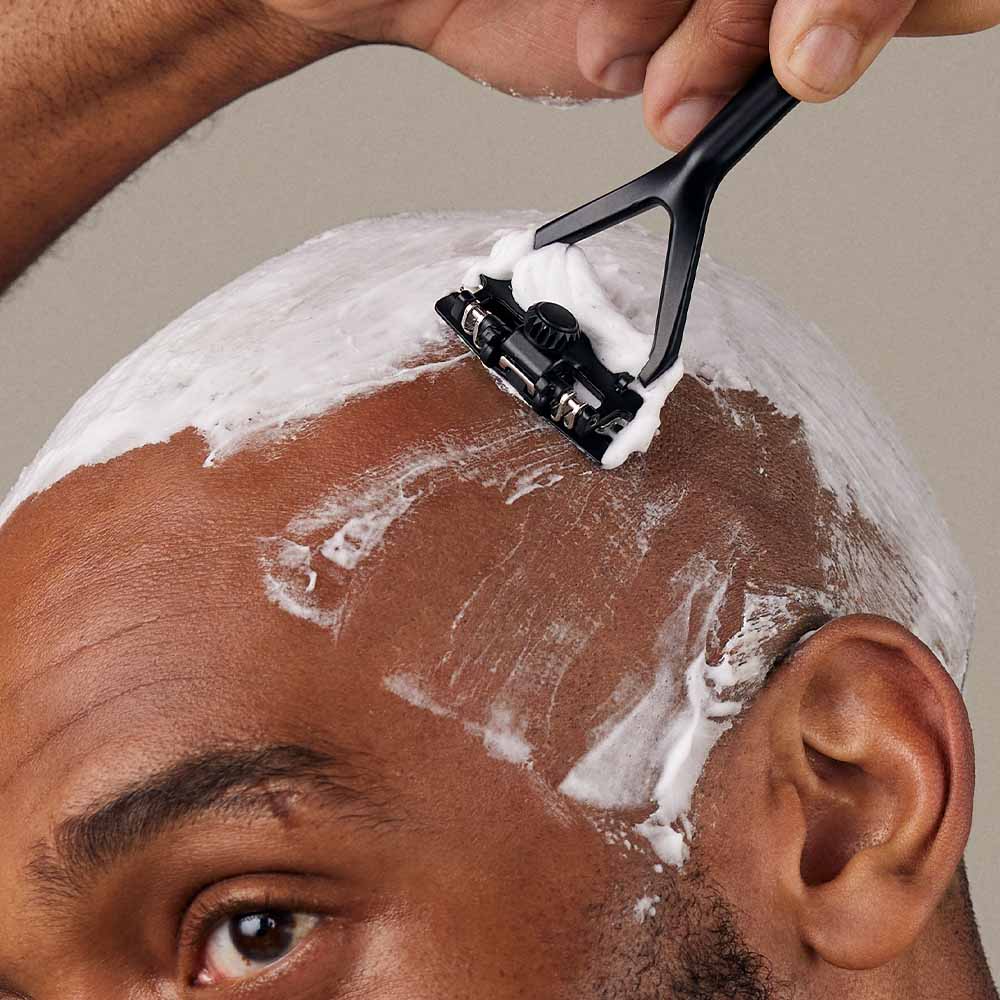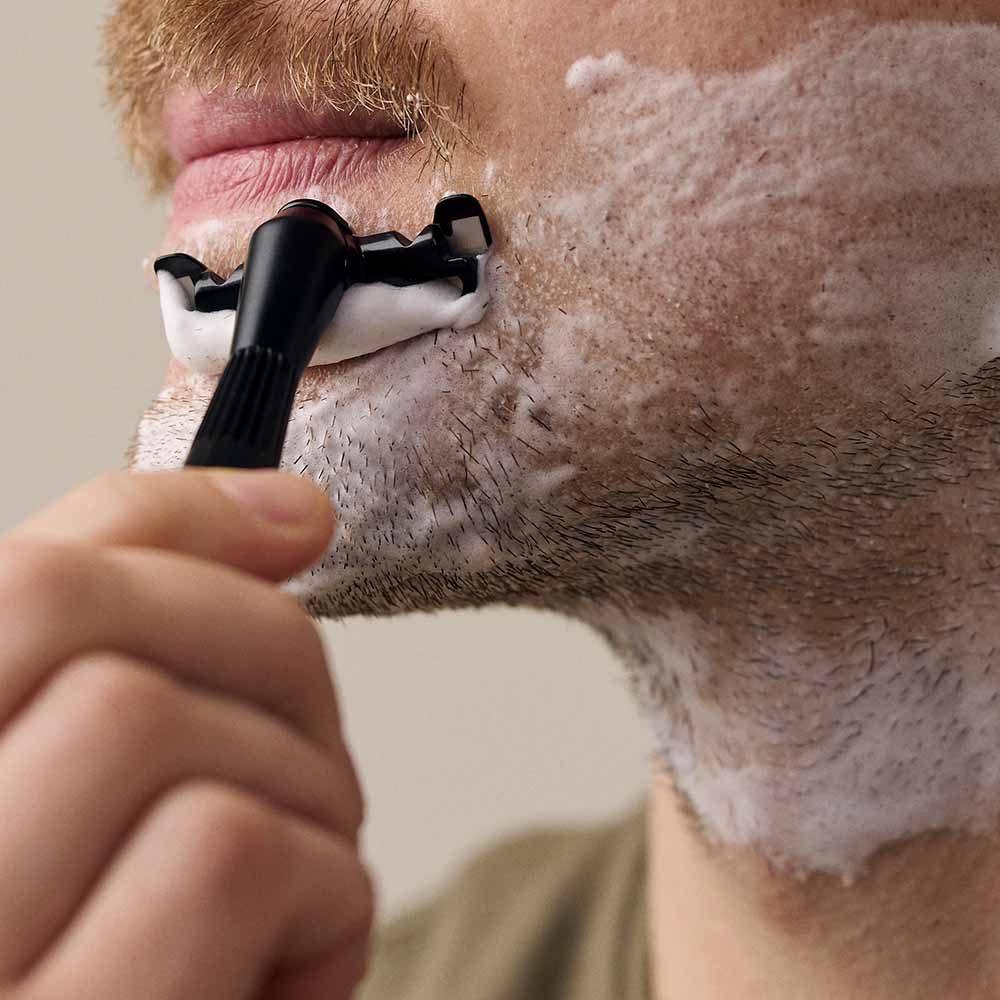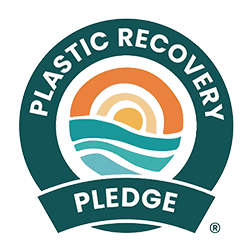You just finished shaving. Your legs feel silky, your skin looks fresh, and you’re ready to soak up some sun. But before you head outside, there’s one step you shouldn’t skip: sunscreen.
You probably already know that sunscreen is an important part of a healthy skincare routine. But did you know that sunscreen becomes even more important after you shave? That’s because shaving doesn’t just remove hair. It also affects the surface of your skin in ways that make it more vulnerable to sun damage.
Here’s why SPF and shaving go hand in hand, and how to protect your freshly smooth skin from irritation, sunburn, and long-term damage.
Shaving is Also Gentle Exfoliation
Every time you shave, your razor glides across your skin, not only cutting hair but also removing a thin layer of dead skin cells from the surface. This is a form of exfoliation, one that helps reveal smoother, softer skin underneath. That’s part of what makes post-shave skin feel so clean and polished.
But here’s the catch: those top layers of skin (known as the stratum corneum) act like a natural shield. They help protect you from things like pollution, bacteria, and the sun’s UV rays. When you shave, you temporarily thin that barrier. While that’s not a bad thing (exfoliation has real benefits), it does mean your skin needs a little extra care afterward.
Think of it like buffing a wooden table. After sanding it smooth, you wouldn’t leave it exposed. You’d seal it with something to protect it. Sunscreen plays that same protective role for your skin.
Shaved Skin Needs Extra Sun Protection
There are a few big reasons sunscreen matters even more after you shave:
1. More exposed to UV rays.
Hair, especially on areas like your legs, arms, or scalp, provides a small amount of natural sun protection. It’s not a substitute for sunscreen, but it does help block some UV light. When you remove that hair, more UV rays reach the skin underneath, making it easier to get burned or develop sun spots.
One study found that shaving or removing hair can increase UV exposure to the skin by up to 20 percent. That means you could burn more quickly than usual, especially on high-exposure days.
2. Your skin is more sensitive.
Shaving can leave behind micro-cuts and irritation, even if you don’t see them. Your pores are more open, and your skin may be a bit inflamed. All of this makes it more reactive to the sun. Without SPF, UV rays can penetrate deeper into your skin and cause more damage.
Dermatologists agree that freshly shaved skin is more vulnerable. That’s why they recommend waiting at least a few minutes before heading outside and always applying sunscreen after shaving.
Is Sunscreen Irritating?
It doesn’t have to be. The key is to apply sunscreen the right way after shaving. Here are a few tips:
Wait a few minutes
Give your skin a chance to settle down post-shave. Splash cool water on the area, pat dry, and wait 5 to 10 minutes before applying sunscreen. This reduces the chance of any sting or irritation.
Use a gentle formula
Look for sunscreens labeled “for sensitive skin” or “fragrance-free.” These are less likely to cause a reaction on freshly shaved areas. Lightweight lotions are great for legs, while gel-cream textures can feel soothing on the face or scalp.
Moisturize first, then protect
Apply a light, soothing moisturizer or aftershave balm to help calm and hydrate the skin. Once that sinks in, follow with SPF. Or, choose a moisturizer that includes SPF 30 or higher, a great two-in-one option for daily use.
Cover every inch
Be sure to apply sunscreen to all shaved areas, even places like your knees, jawline, or the back of your neck. If you shave your head, don’t forget your scalp. It’s one of the most sun-sensitive spots once the hair is gone.
How Far in Advance Should you Shave?
If you’re gearing up for a beach day or an afternoon in the park, consider shaving the night before. That gives your skin time to rebuild a bit of its natural barrier. But if you prefer a fresh morning shave, don’t stress. Just give yourself a little time before sun exposure, and don’t skip the SPF.
Dermatologists suggest waiting at least 15 to 30 minutes after shaving before sun exposure, if possible. Even better, wear lightweight clothing that offers UV protection, like breezy pants or a sun shirt, over freshly shaved skin.
Now, Protect It
Let’s be honest. Shaving is a confidence booster. There’s nothing quite like the feeling of smooth skin, especially when you’ve taken the time to do it right. And as long as you follow up with sun protection, shaving is not only safe, it’s part of a healthy self-care ritual.
So think of sunscreen as the finishing touch. Like conditioner after shampoo. Or your favorite serum after cleansing. It locks in the benefits of your routine and keeps your skin safe and glowing long-term.
You already went through the effort to get your skin feeling fresh. A quick swipe of SPF is all it takes to keep it looking and feeling its best.
TL;DR
- Shaving removes the top layer of dead skin cells and hair, leaving skin smoother but also more sensitive to the sun.
- This makes you more prone to sunburn, irritation.
- To protect freshly shaved skin, apply a gentle sunscreen with SPF 30 or higher, wait a few minutes after shaving, and moisturize if needed.
- Shaving is great. Just seal the deal with SPF.
Let your skin shine, not burn.
SHOP HEAD SHAVING
SHOP FACE SHAVING
SHOP BODY SHAVING


